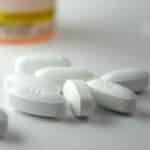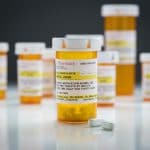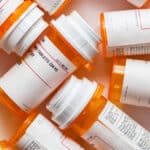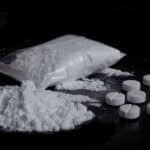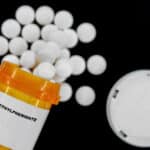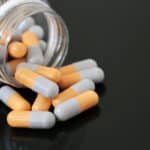Why Ritalin Is A Controlled Substance
Methylphenidate hydrochloride (brand name Ritalin) is a central nervous system (CNS) prescription stimulant used to treat attention deficit hyperactivity disorder (ADHD) as well as the sleeping disorder narcolepsy.
According to the United States Drug Enforcement Administration (DEA), Ritalin is a schedule II substance under the Controlled Substances Act.
Ritalin is a controlled substance because it has a high potential for abuse that can lead to psychological or physical dependence. Other schedule II drugs include:
- amphetamine (Adderall)
- methamphetamine (Desoxyn)
- hydromorphone (Dilaudid)
- methadone (Dolophine)
- meperidine (Demerol)
- oxycodone (OxyContin)
Although it may be beneficial in the treatment of ADHD symptoms, Ritalin may cause a number of side effects and can lead to drug abuse.
How Ritalin Works
Ritalin is a prescription drug available in a variety of forms such as a short-acting immediate release tablet and a long-acting extended release tablet. This ADHD medication works by blocking the reuptake of norepinephrine and dopamine, two neurotransmitters.
When taking Ritalin, dopamine is increased, reaching the receptors in the brain. When this takes place, a person may experience certain stimulant effects which may be pleasing, including the feelings of euphoria.
Side Effects Of Ritalin
This prescription drug may cause a number of side effects which can range in severity.
According to the Substance Abuse and Mental Health Services Administration (SAMHSA), euphoria is felt due to the release of dopamine and the intensity can vary depending on how much Ritalin has been taken or if the prescription stimulant has been combined with other drugs.
Common Side Effects
Some of the common side effects associated with Ritalin include:
- dry mouth
- insomnia
- anxiety
- upset stomach
- diarrhea
- appetite suppression
- headache
Serious Side Effects
Those who abuse Ritalin may experience certain serious and life-threatening side effects due to the medication.
For instance, according to the National Institute on Drug Abuse (NIDA), young people may take Ritalin in large quantities to experience wakefulness, weight loss, or increased energy.
Some of the serious side effects of Ritalin abuse may include:
- changes in blood pressure
- heart rate fluctuations
- fainting
- seizures
- tics
- fever
- slowed speech
Dangers Of Ritalin Use
The United States Food and Drug Administration (FDA) states that Ritalin is approved for medical use. However, there are warnings and dangers you should be aware of.
Cardiovascular Problems
The FDA states that those with heart problems or heart defects may experience sudden death, a stroke, or a heart attack if Ritalin is taken.
If you have a family history of high blood pressure or problems with heart rate, be sure to contact your doctor immediately before taking this medication.
Physical Dependence
Another problem that can be caused by Ritalin is dependence. Drugs that belong to the schedule II class have a high potential for abuse, which can lead to a person developing a dependence to the stimulant.
A person may experience dependence to the drug which can be characterized by withdrawal symptoms that may be severe when they stop use. Some stimulant withdrawal symptoms may include:
- manic-like states
- psychosis
- depression
- increased appetite
- irritability
Overdose
An overdose of Ritalin can occur, but may also be accompanied by opioid, benzodiazepine, or other types of prescription or illegal drug abuse. Those who combine Ritalin with other prescription drugs or illicit drugs may experience a number of health problems.
If you suspect an overdose has occurred, contact 911 immediately.
Ritalin Addiction Treatment
If you or a loved one are seeking treatment for a substance abuse problem, consider treatment programs led by healthcare professionals who have the experience needed to assist you during your time of need.
At Northeast Addictions Treatment Center, we provide a wide-range of outpatient treatment options like group therapy, mental health counseling, and aftercare.
To learn more, please contact us today.
Sources
Written by
Northeast Addition Editorial Team
©2024 Northeast Addition Center | All Rights Reserved
This page does not provide medical advice.

